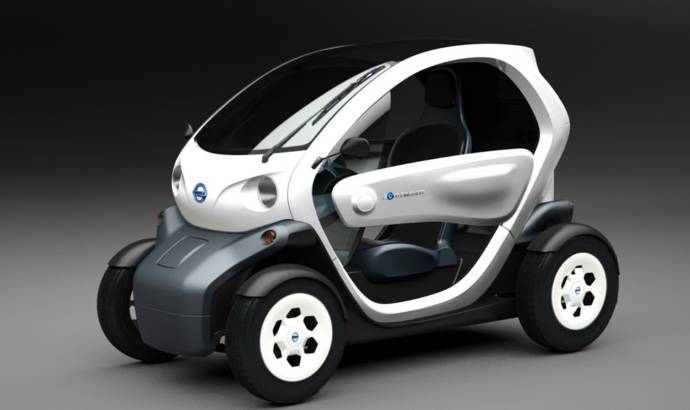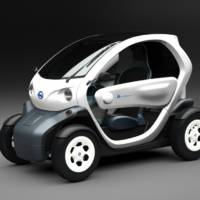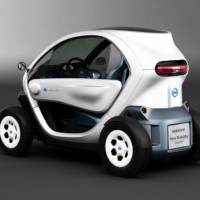Nissan is offering a set of preliminary details regarding their ‘New Mobility CONCEPT’ which represents a new proposal for an electric vehicle.
The NISSAN New Mobility CONCEPT is best characterized by four different aspects : it is innovative as it features a two-seater configuration suitable for various needs and occasions, is is easy to drive and park, due to its compact size, it is safe (‘Manoeuvrability equivalent to motorbikes with greater safety’) and it is also clean, as it uses an emission free powertrain.
The Japanese manufacturer will also study the use of the NISSAN New Mobility CONCEPT as a ‘seamless mobility service’ by using a public transportation service linking public transportation and EVs, plus it will or as a ‘2-mode EV car sharing’ which means the vehicle is being used a private commuter vehicle in the mornings and evenings, and as a corporate car during business hours.
Stay tuned for more details with the NISSAN New Mobility CONCEPT as soon as the company will release them.
Nissan press release :
YOKOHAMA, Japan (November 1, 2010) – Nissan Motor Co., Ltd today announced a proposal for new mobility in a sustainable zero emission society and an electric vehicle (EV) embodying its proposal, ‘NISSAN New Mobility CONCEPT’.
Nissan continues to envision new possibilities realised by EVs. One proposal is a sustainable, efficient and convenient mode of transportation focussing on the increase of elderly and single households, as well as the trend of driving short-distances or in smaller groups. NISSAN New Mobility CONCEPT is our proposal to make this a reality.
Four keywords outline the NISSAN New Mobility CONCEPT:
* Innovative – New two-seater compact mobility for various needs and occasions
* Easy – Size which enables anyone to drive and park easily
* Safe – Manoeuvrability equivalent to motorbikes with greater safety
* Clean – No emissions while driving
Nissan New Mobility Concept is a user-friendly, ultra-compact 100% electric vehicle with no emissions which is expected to be utilised in various situations in everyday life. Nissan will study the use of this vehicle for a variety of services, such as:
* ‘seamless mobility service’, a highly efficient and convenient public transportation service linking public transportation and EVs supported by IT,
* ‘2-mode EV car sharing’, where the vehicle is used as a private commuter vehicle in the mornings and evenings, and as a corporate car during business hours, and,
* contributing to the revitalisation of communities with improved mobility in both urban and tourist locations.
Revitalisation of communities
Aiming to be a global leader in zero-emission mobility with Alliance partner Renault, Nissan will launch Nissan LEAF, the first 100% electric, mass-marketed, zero-emission car in December 2010 in Japan and the United States, and in early 2011 in Europe. In addition to the development and production of EVs, Nissan is taking a comprehensive approach to promote sustainable mobility. This includes Nissan’s engagement with more than 80 zero-emission partnerships worldwide with countries, cities, organisations and other key stakeholders, the deployment of charging infrastructure, second-life use of lithium-ion batteries in EVs and the promotion of recycling parts used in vehicle production.

01 Nov 2010
0




